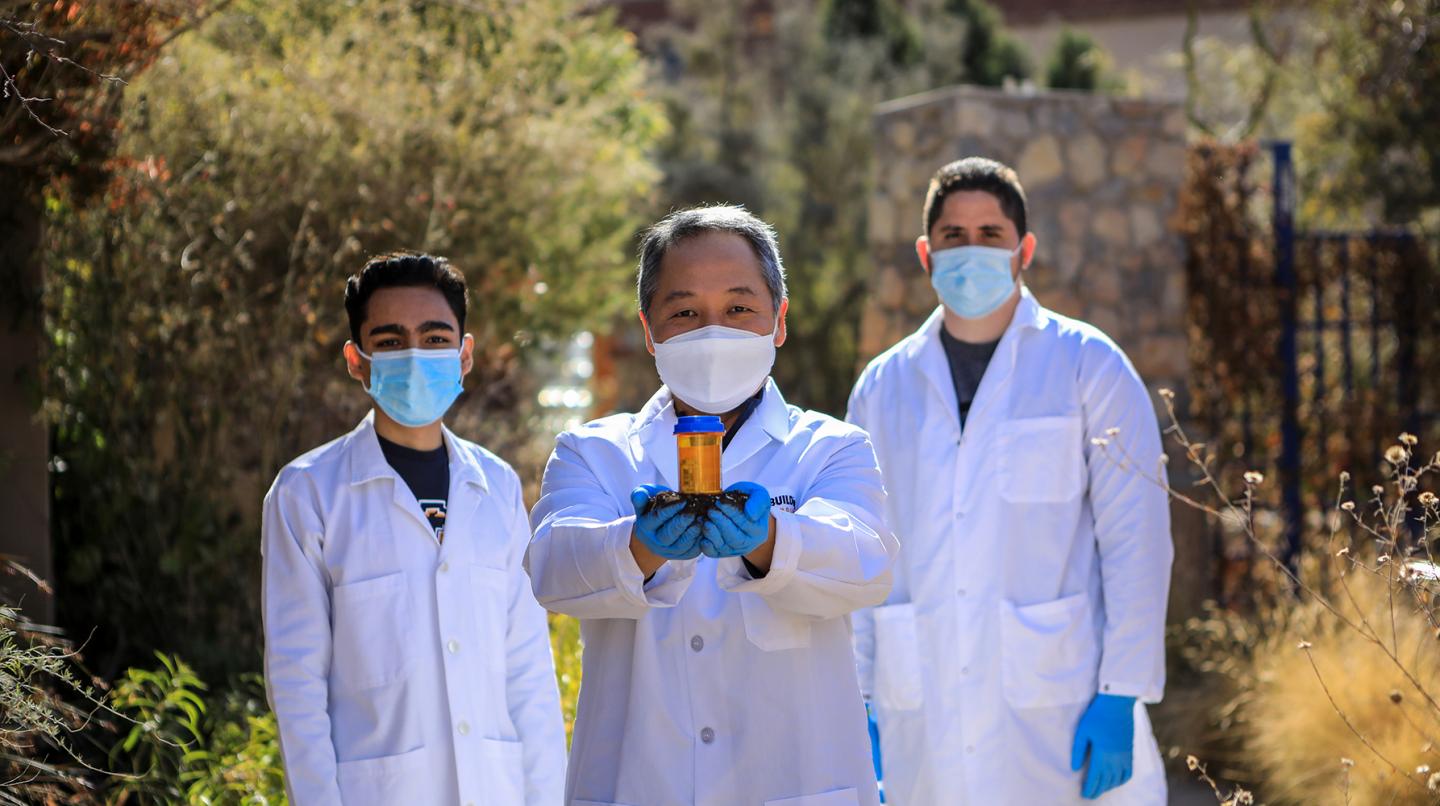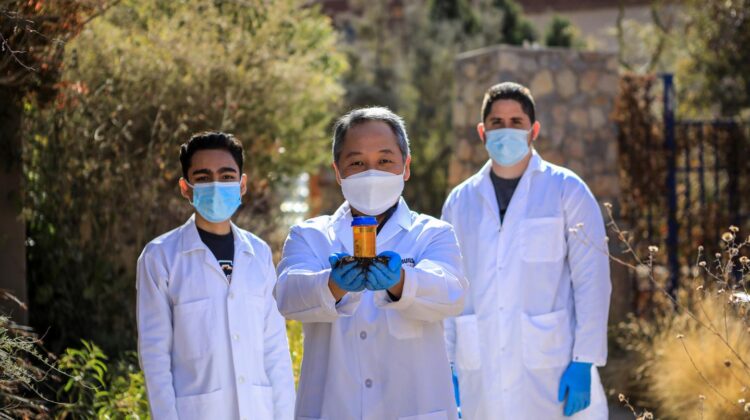
Credit: J.R. Hernandez / UTEP Communications
EL PASO, Texas – Chu-Young Kim, Ph.D., associate professor of chemistry and biochemistry at The University of Texas at El Paso, is helping combat the threat of superbugs – illnesses caused by drug-resistant bacteria – by returning to nature.
His work is supported by a $1.2 million grant from the National Institutes of Health (NIH) to develop a biological method for producing new versions of current antibiotics that have become ineffective due to resistance.
Superbugs are a major problem threatening the lives and health of people worldwide. A 2019 report by the Centers for Disease Control and Prevention states that more than 2.8 million antibiotic-resistant infections occur in the United States each year, and more than 35,000 people die as a result.
Kim said that the development of new antibiotics is essential since many are rapidly becoming less useful due to resistance. Rather than attempt to create entirely new compounds, Kim and his research team are taking drugs that already exist and modifying their chemical structure so that they retain the antibacterial activity but overcome resistance.
“Antibiotic drug resistance represents a real health threat,” said Robert Kirken, Ph.D., dean of the College of Science. “Over the past several decades we have seen little drug development in this area until recently. The work by Dr. Kim will help us stay one step ahead of these infections that kill tens of thousands of Americans each year.”
Traditionally, scientists modify drug molecules using chemical methods. Penicillin is one example of a drug that has seen enhanced versions developed throughout the years. However, Kim said that most antibiotics have structures that are more complex than penicillin. Thus, using chemicals to prepare new versions of these drugs would take years and the yield would be very low, making it impractical from a commercial standpoint and unaffordable for patients.
“What we are doing is, instead of chemically modifying the drug molecules as it is traditionally done, we’re going back to the original microorganisms that synthesize these antibiotics in the first place,” Kim said. For example, penicillin is produced by a fungus and echinomycin is derived from a soil bacterium. The research team will study how nature generates these complex molecules.
“Our ultimate goal is to use that knowledge to engineer microorganisms by mutating their DNA so that they produce a modified antibiotic that is effective against superbugs,” Kim said. “By doing it this way, we can produce very large quantities of the drug via fermentation and provide it to patients at an affordable price.”
Kim and his research team of undergraduate and graduate students will focus their efforts on studying how bacteria produce a natural product antibiotic called lasalocid. This drug requires nine enzymes – proteins that perform chemical transformations – to work together for bacteria to synthesize the antibiotic.
###
Media Contact
Victor Ricardo Martinez
[email protected]





